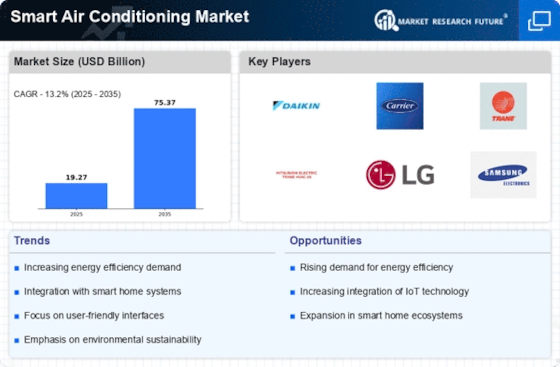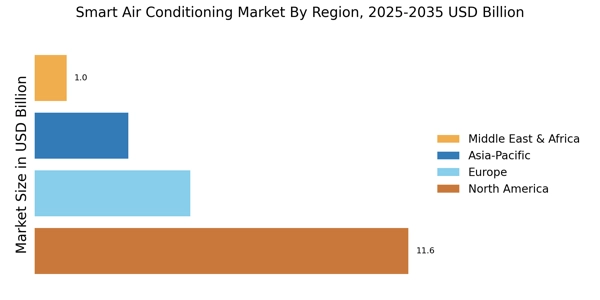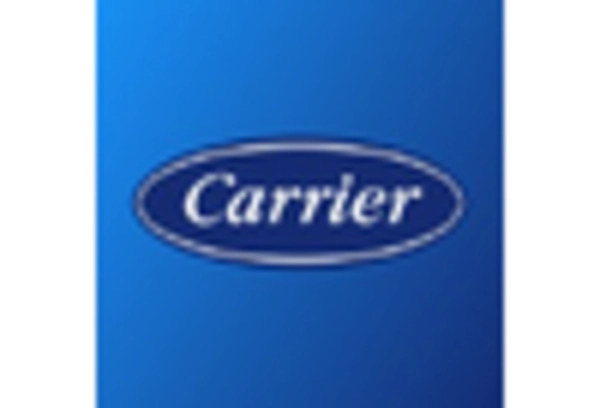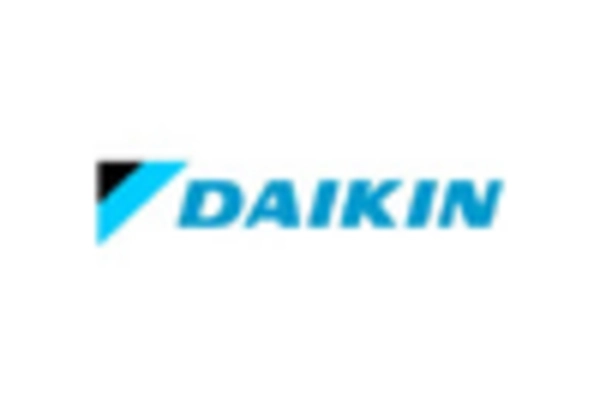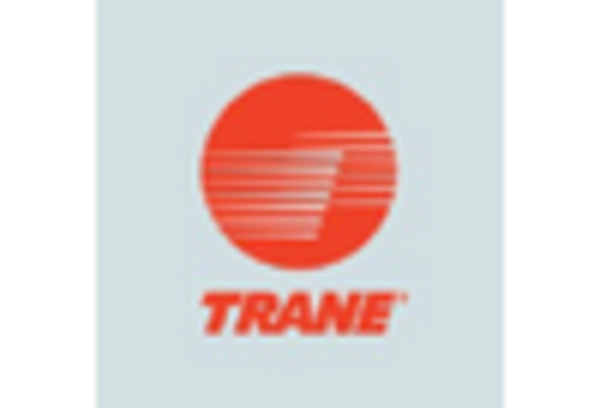Consumer Awareness and Preferences
Consumer awareness and preferences are pivotal in shaping the Smart Air Conditioning Market. As individuals become more informed about the benefits of smart technologies, their purchasing decisions are increasingly influenced by energy efficiency, convenience, and sustainability. Surveys indicate that a significant percentage of consumers prioritize energy-efficient features when selecting air conditioning systems. This shift in consumer behavior is prompting manufacturers to focus on developing products that meet these preferences, such as smart thermostats and energy monitoring systems. The growing inclination towards smart home integration further enhances the appeal of smart air conditioning solutions. As awareness continues to rise, the Smart Air Conditioning Market is expected to expand, driven by a consumer base that values innovation and efficiency.
Rising Demand for Energy Efficiency
The Smart Air Conditioning Market is experiencing a notable surge in demand for energy-efficient solutions. As consumers become increasingly aware of their carbon footprints, the need for systems that optimize energy consumption is paramount. According to recent data, energy-efficient air conditioning systems can reduce energy usage by up to 50% compared to traditional units. This shift not only aligns with environmental goals but also offers significant cost savings for users. The growing emphasis on sustainability is driving manufacturers to innovate, leading to the development of smart air conditioning units that utilize advanced technologies such as variable speed compressors and smart thermostats. These innovations are likely to enhance the overall appeal of the Smart Air Conditioning Market, as they promise both environmental benefits and economic advantages.
Government Initiatives and Incentives
Government initiatives and incentives are increasingly influencing the Smart Air Conditioning Market. Many governments are implementing policies aimed at reducing energy consumption and promoting the adoption of energy-efficient technologies. Incentives such as tax rebates, grants, and subsidies for energy-efficient appliances are encouraging consumers to invest in smart air conditioning systems. For instance, certain regions have introduced programs that offer financial assistance for upgrading to energy-efficient HVAC systems. These initiatives not only support environmental goals but also stimulate market growth by making smart air conditioning solutions more accessible to a broader audience. As these policies continue to evolve, they are likely to have a lasting impact on the Smart Air Conditioning Market.
Technological Advancements in HVAC Systems
Technological advancements are playing a crucial role in shaping the Smart Air Conditioning Market. The integration of Internet of Things (IoT) technology into HVAC systems allows for enhanced control and monitoring capabilities. Smart air conditioners can now be remotely accessed and controlled via smartphones, providing users with unprecedented convenience. Furthermore, predictive maintenance features enabled by advanced analytics can identify potential issues before they escalate, thereby reducing downtime and maintenance costs. The market is projected to grow as these technologies become more mainstream, with estimates suggesting a compound annual growth rate of over 10% in the coming years. This trend indicates a robust future for the Smart Air Conditioning Market, as consumers increasingly seek out innovative solutions that enhance comfort and efficiency.
Increasing Urbanization and Population Growth
Urbanization and population growth are significant drivers of the Smart Air Conditioning Market. As more individuals migrate to urban areas, the demand for efficient cooling solutions escalates. Cities are often characterized by higher temperatures due to the urban heat island effect, which necessitates effective air conditioning systems. The United Nations projects that by 2050, nearly 68% of the world’s population will reside in urban areas, further intensifying the need for smart air conditioning solutions. This demographic shift is likely to propel the Smart Air Conditioning Market forward, as urban dwellers seek systems that not only provide comfort but also integrate seamlessly with smart home technologies. The convergence of these trends suggests a promising outlook for the industry.

